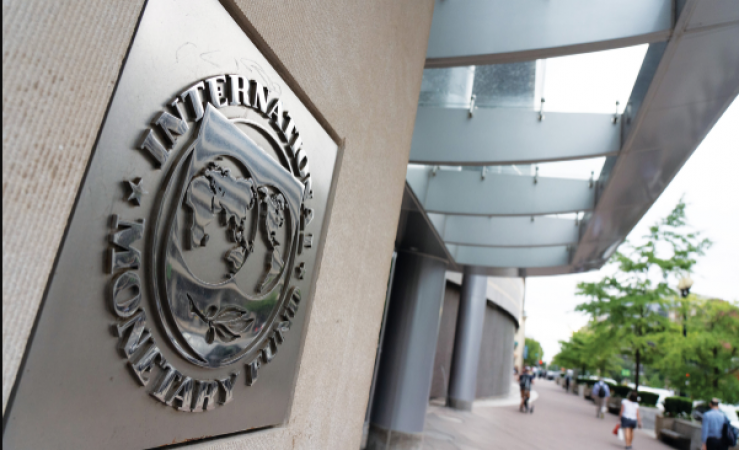
Washington: The International Monetary Fund (IMF) has issued a somber warning as the world contends with the confluence of the Russia-Ukraine conflict and the persistent specter of COVID-19, revealing an intensified risk of recession and a gloomier economic panorama on the global stage.
In its most recent iteration of the World Economic Outlook, the IMF has slashed its growth projection for 2023 to a modest 3.6%, a substantial drop from the 6.1% surge witnessed in 2022. This recalibration marks the IMF's most conservative growth prediction since the pandemic's inception.
The IMF underscored the devastating impact of the Ukraine crisis, delineating its far-reaching consequences for the global economy. The conflict has unleashed a cascading series of disruptions, impeding international trade, energy markets, and financial flows. An additional fallout is anticipated in the form of elevated inflation levels and decelerated growth across Europe and beyond.
Also Read: Reshma Shetty's Impact on Salman Khan's Career
However, the IMF's concerns extend well beyond the conflict, outlining a labyrinth of challenges that lie ahead. The rising tide of interest rates, labyrinthine supply chain interruptions, and the looming specter of climate change cast long shadows over the world's financial outlook, presenting an assemblage of hurdles that could further smother growth and heighten the specter of a recession.
Also Read: Modi Government's Initiatives Foster Formalization of MSMEs, Boost Economic Growth: SBI Research
Cognizant of these multifaceted perils, the IMF has laid out a clarion call for policymakers to undertake concerted measures to mitigate the looming threats to the global economy. The prescribed strategies span a spectrum of actions, including furnishing financial support to susceptible nations, amplifying collaboration among central banks, and confronting the formidable issue of climate change head-on.
This clarion warning arrives on the backdrop of an already intricate economic tapestry. The Ukraine conflict has spurred a relentless ascent in energy prices, inciting inflationary pressures that have gripped numerous nations in a stranglehold. Alarmingly, the trajectory of inflation seems poised to surge even higher in the upcoming months.
Also Read: US Stocks Open Lower as Investors Await Key Economic Data
Yet another significant quandary confronting the global economy is the escalating trajectory of interest rates. Central banks, grappling to arrest the inflation surge, are resorting to rate hikes, potentially exacerbating the challenge of sluggish growth. Eerily, the IMF forewarned that the "considerable risk of stagflation" looms large—a perilous equilibrium of soaring inflation and stunted economic expansion.
This resounding admonition from the IMF serves as an unwavering reminder that the global economic landscape is mired in complexity. To navigate these stormy waters, policymakers will necessitate a comprehensive strategy to attenuate the gravitating perils and avert the precipice of recession.